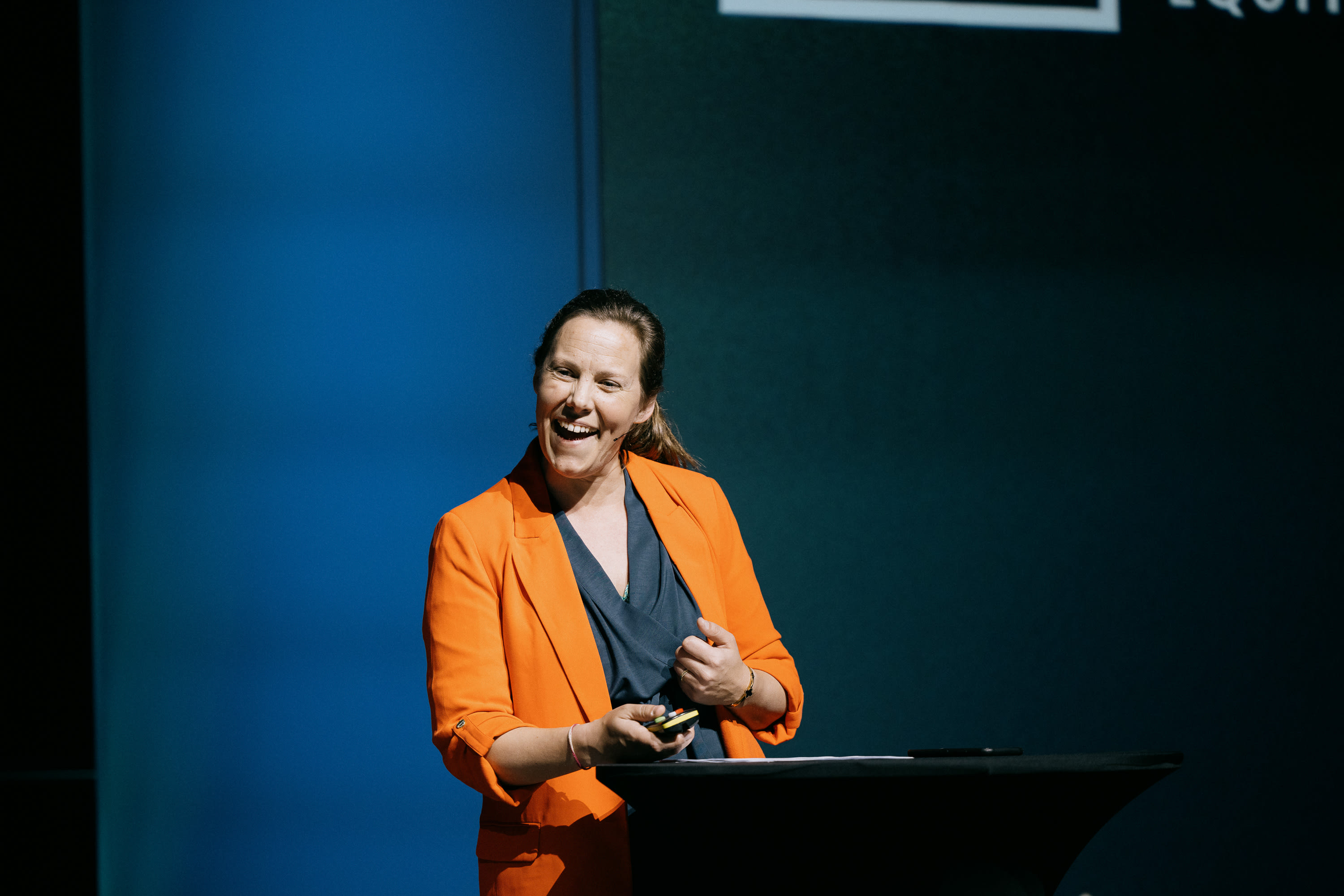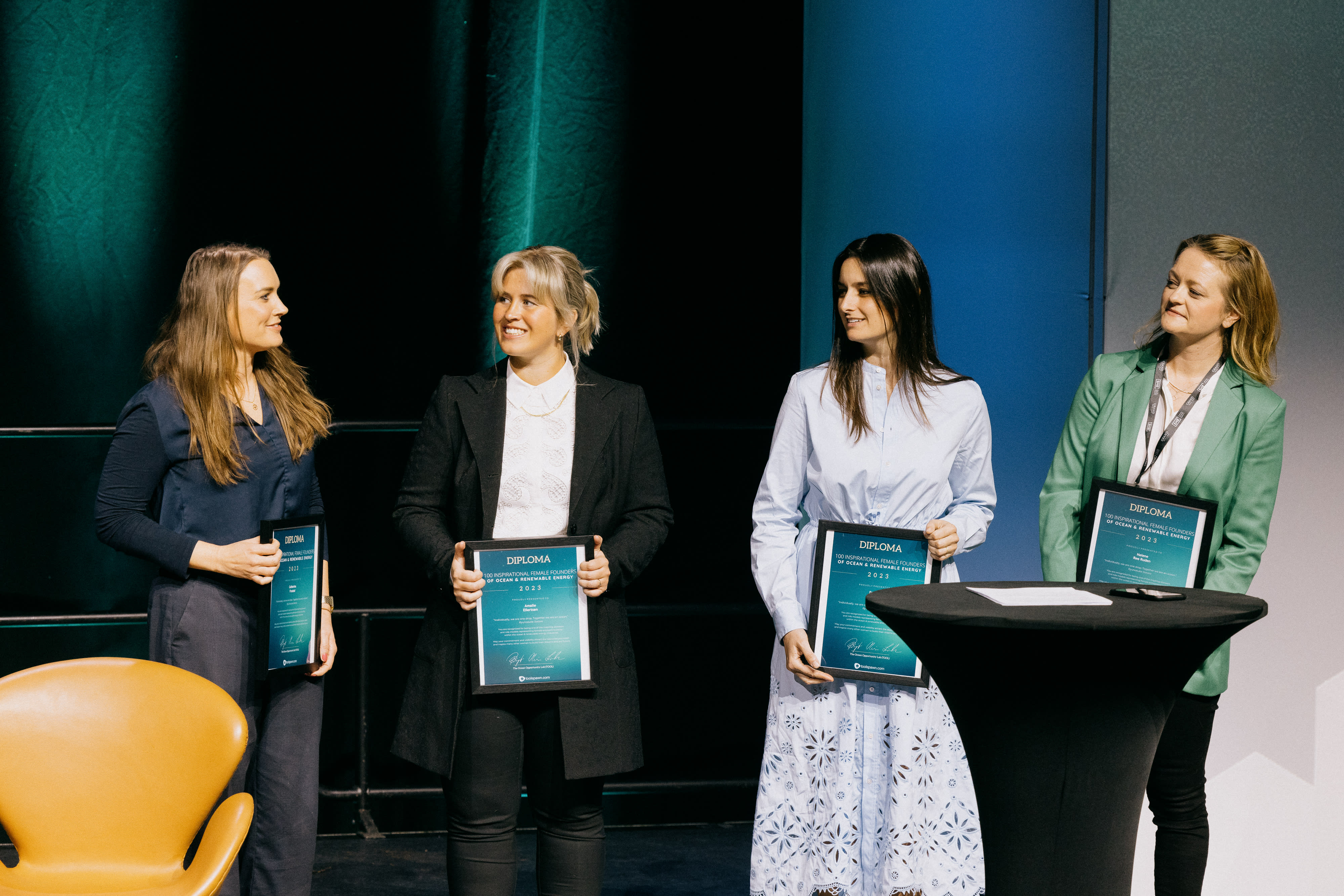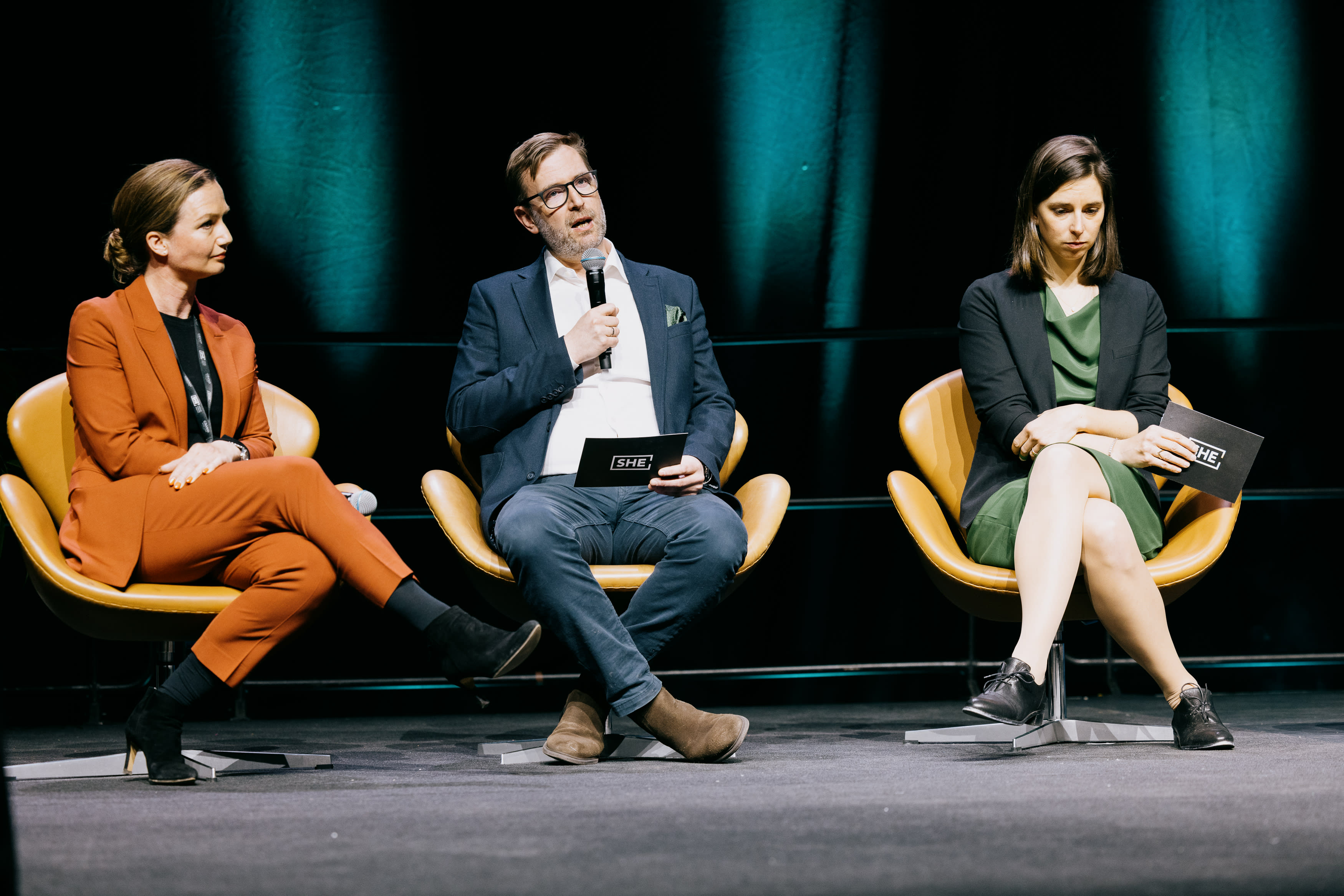
TOOL Spawn in Women & DEIB • 2 yr. ago
SHE Conference 2023: Highlights
Session 1: Women at the helm - Owning, Founding and Investing for an Inclusive Future.

'I usually say that Norway is by the Sea and of the Sea. We have a rich history and tradition of building our society from the ocean, starting from the fishing industry and onto the maritime and energy sectors. Now the ocean will also be a very important part to how we solve climate change challenges.' -Erna Solberg (Former Prime Minister of Norway)
'The ocean and energy industries have enormous potential for future innovation and women have to be a part of that. One of the biggest challenges that we still face is making sure that women have equal access to science and technology education. -Erna Solberg (Former Prime Minister of Norway)
WATCH THE FULL RECORDING OF THE FIRST SESSION HERE:
Part 1: Launch of Female Candidate Pool and 100 Female Founders.

During this year's edition of the SHE Conference, TOOL is incredibly proud to have launched the Global Female Candidate Pool and the 100 Female Founders List. The global Female Candidate Pool initiative has been created in order to strengthen and promote women in the maritime and energy sectors, and get more women to use their talents and commitment in industries that represent solutions for the future. Within this pool of five hundred exceptional women there are 25 countries that are represented with the U.S, Canada and Norway as frontrunners.
Learn more about our TOOL for Women Initiatives here:
List of 100 Inspirational Female Founders: http://localhost:3000/posts/cls050xno03yv03p56szd2xfo
TOOL and Veer Group Collaboration: http://localhost:3000/posts/cls050xno03yt03p5fnyf6y4u

100 Female Founders Panel & Fireside Conversations on Owning, Founding and Investing led by: Johan H. Andersen (Owner & Chair @ FERD, Chair Council of Ethics @ The Norwegian Council Pension Fund), Siri Kalvig (CEO @ Nysnö Climate Investments), Lina Constantinovici (Oceans Funders/Innovation 4.4. Founding Partner BVC Fund, Founding Co-Chair NEXUS Global Impact Investment Working Group)
“The world is composed of at least 50 percent women yet when we look at key statistics of roles that women hold, we see that they are not being represented at those numbers. For instance, if we look at women CEOs in fortune 500 companies less than 10.6 of them are women, on a global scale less than 20% of women hold board member positions, 4% of capital in silicon valley belongs to female founders. As we can see there is a bit of a disparity in the numbers, yet according to Forbes when we look at performance in female founded companies outperform male founded companies by 35 percent. Having more women in key roles is beneficial to society, beneficial for investors, and beneficial to our global economy.” -Lina Constantinovici

Five of the 2023 Female Founders List are welcomed onto the stage and given diplomas: Danielle Southcott from Veer Group, Agnes Arnadottir founder of BRIM Explorer, Catharina Frostad founder of Clean Sea Solutions, Helene Ree Ruden Director and Co-Founder of Ruden Energy/Ruden Water and Amalie Eilertsen CEO and Co-Founder of Norsjor.
Part 2: Founders Building the Future - What do they need?

Agnes Arnadottir founder of BRIM Explorer- BRIM Explorer had three goals:
Push greener tourism in Norway by being the first company to fully commercialize high quality and zero emission tours in the Arctic region.
Demonstrate that it was financially intelligent to invest in those vessels. Since the perfect self sufficient electric vessel did not exist we had to design and develop it ourselves.
To create as much awareness as possible amongst our guests and create ocean ambassadors from all over the world. Make sure to talk about climate and marine life to the thousands of people that come onto our boats.
Danielle Southcott from Veer Group - What does the company need?:
'Veer will gain breakthrough momentum by deploying the first clean containership to cross an ocean.'
Veer is looking for impact investment.
Veer is looking for iconic brands that are mission aligned to add their voice to their mission. Any brand that wants to ship emission free when it's available.
Sharing and liking content. This is a movement that we are building together.
Helene Ree Ruden Director and Co-Founder of Ruden Energy/Ruden Water
'50 percent of all energy output today is lost, Ruden has developed a heat technology that stores this energy. We basically recycle energy that has already been produced.'
We need producers of surplus energy globally (combustion plants, smelters, etc..)
We need capital, we need investment.
We need better aimed public support schemes.
We need people from the oil and gas sector to join us, we definitely need their competence.
Part 3: Scaling Enabling Technologies.

Amalie Eilertsen CEO and Co-Founder of Norsjor - What are your company needs?
'We need talents, human minds that have the motivation to make a change and the eargerness to take Norsjor to a global bond company. People that want to give the ocean a voice and want to save it with sustainable technology.'
Catharina Frostad founder of Clean Sea Solutions - What are your needs?
'At the moment we really need more first costumers, more strategic partners, and of course more investors. We are at the point right now where the first products and prototypes are out on the market and these are our needs.'
Session 2: OCEAN - From vision to reality.
Part 1: The role of cargo owners pioneering zero emissions.

'We have reached a point where we have talked a lot about the change that needs to happen but not nearly enough is happening. In order to accelerate the green transition and to encourage new companies to get started, it's important that we now start demonstrating the technology that we know will help bring us closer to zero emission shipping. It’s important that we start thinking about the business models of the future because shipping cannot look the same in 20 years as it looks today. The role of entrepreneurs and startups is to demonstrate technological feasibility and that alternative business models are effective and profitable as well.” -Anne Katrine Bjerregaard (Head of Strategy & Sustainability, Mærsk Mc-Kinney Møller Center for Zero Carbon Shipping (DK)

'As cargo owners we don't have to passively wait for the shipping industry to take the risks themselves. We need to take responsibility of our role and share that risk and go in search of long term partnerships rather than short term price cuts in order to facilitate the change that is needed for the green transition.' -Lars-Erik Marcussen (PM Logistics, HeidelbergCement Northern Europe)
Part 2: Accelerating Green Shipping.
Shipping will be a key enabler for the rest of industries who need to cut their emissions and go green across their value chain. As we look to transform the shipping industry, their are many challenges and hurdles that we need to hack since we represent asset heavy fields that often times have a been subject to a long history of tradition and legacies of generations that are difficult to disrupt and change.
In this section we look at the clear goals that these actors have set for sustainability and diversity. What are their most pressing and unresolved challenges? What are their special hacks?

Hedda Felin - CEO Hurtigruten
'We need to start with what we already have, with the current fleet. I think it is really important that we don't just aspire for the future but also look at what already exists.' 'I think that both Hurtigruten and Norway can really make a difference when it comes to diversity. This industry is far too male dominated, it can be really boring sometimes when there are only men in the room. But we can really change this, in my management team we are 50/50 and 75 nationalities in the group. This is just a start. As we have talked many times before, it is truly difficult to get more women working on the ships. So what can we do to get more women to be sea-based? We need more women and show the younger girls that this is possible for them'
Diversity Hack:
'I''ll come back to the role model part. We need to start early, start with graduates, start with schools and with your own daughters. Show them the opportunities that are open to them and give them role models to follow.'

Pia Meling - Managing Director Grieg Green
'We are quite proud of our diversity targets at Grieg. We aligned these goals with WISTA meaning that we should have at least 40 percent women in management positions by 2030 and we are already there. Of course this means that it needs to be maintained and that there should be more women in technical positions and onboard ships.'
Diversity Hack:
'When you bring in diversity into your company, they need to have the space to actually be different so they don't have to adapt to how everything is being done and are able to keep their unique mindset. In this way, you allow for friction to happen and avoid conformity.'

An-Magritt Ryste - Director Next Generation Shipping Kongsberg Maritime
'For 2022 we had a target to have 21 percent of overall women in our company. That's nothing right? We can do much better. For 2023 our goal is to have 30 percent women in L1 to L3, so we're talking about top management positions. Where do we recruit the from? Because if we only have 21 percent women in our company, where are those 30 percent going to come from? It comes from the bottom up which is why it is so important that we encourage young girls to come into this. We spend too much time on the tech and not enough time on what are we are actually making and why.'
Diversity Hack:
'Be curious and open to learning from the different people around you! It will bring so much value back to yourself and broaden your horizons.'
Part 3: Collaborative Initiatives.

Stine Mundal - President of WISTA Norway
'For companies signing the WISTA #40by30 pledge and joining this initiative, we have seen that it is really good employer branding both internally and externally speaking. It creates a lot of engagement among your existing employees and you also attract the future workforce which is a scarcity.'

Ingelin Grimsæth - SeaHER, Vice Chair of the Norwegian Maritime Officers' Association
'In order to retain women workers at sea you have to have them working there in the first place. When we look at the female applicants for the Norwegian Maritime Education Program, the rate has been at a stable low 10 percent for the last 15 years. There are many factors that contribute to this gap, if we look at the women that are working in these fields we see that we also tend to loose them along the way. We see that a life at sea and a career offshore (the way that it is set up now) is not compatible with them making the decision to form families. What we need is a life stage policy for seafarers, something that does not exist.'

Capt. Jaquelyn Burton - Chair of SAMS, founder of Captains Without Borders (US)
'There is a large talent base that is simply not accessible to the regular maritime industry. There is such a thing as a 'non-preferred nation' because opportunities are not evenly distributed even though talent is everywhere in the world. Unless we give these individuals a path into the industry it's kind of impossible to reach that talent gap. For example, if you grow up in Kenya and you've gone to the maritime academy in Kenya you could work on fishing boats but you cannot get an international license even though you've done the training necessary for STCW. This is what we are trying to change, we need vessel and cargo owners to put into their charter agreement that they want to have diverse talent, not just women but other nationalities as well.'
Session 3: ENERGY - Fueling the green transition.
Part 1: An ocean of clean energy.

“From our side, in order to be an important company we need to have the best organization in place. Diversity isn’t only about hiring more women, it is about having a wide competence base internally. It’s about having people that see things from different perspectives, this is the way that we can succeed in our energy transition targets.”
“A big challenge for us is that we require quite a lot of technical and operational goals. Unfortunately, it is still difficult to get diversity within that area. We need to encourage and build up the interest in our communities for more technical and vessel specific roles for wind farms and make this transition possible.” - Ingrid Due-Gundersen (CEO, Havfram)
Part 2: Onshore - Beyond the grid.

“We see that diversity is key to accelerate the energy transition. We need diversity in the people that are in critical decision making. We believe that this will lead to better and faster resource allocation.”-Ann-Mari Lillejord (EVP Project Development, Scatec ASA
“I think that we as humans tend to forget the past, if we look ten years back wind energy or wind turbines used to cost 70 percent more and solar panels 90 percent more. I think that we are on a really good track to make this happen, the world is in fact moving towards a green economy and renewable energy is gaining momentum -Bjørn Simonsen (Chair Heimdall Power, Board HYON)
Part 3: Storage - Breathing grid.

“I would love to see CEOs and leadership teams in more mature companies taking on the ‘beginner’s mind’, where every day is a starting line. To ask themselves “if I were to start this company today, how would I build it? And what type of people would I want to include to make sure there is future growth?”
“We have to check our own biases: affinity bias, confirmation bias... In general, we like people that look just like us and that think just like us so putting in place programs that make us check our biases is truly key.” -Naja Boone (Morrow Batteries)
Official Photographs from SHE 2023 ACCESS LINK
Click here for access to official event photos: https://flic.kr/s/aHBqjACqsn Make sure to give credit to julie_hrncirova / @studio.abrakadabra when sharing the photos!
Loading...

